What legal challenges is Trump planning?
- Posted on
- Comment
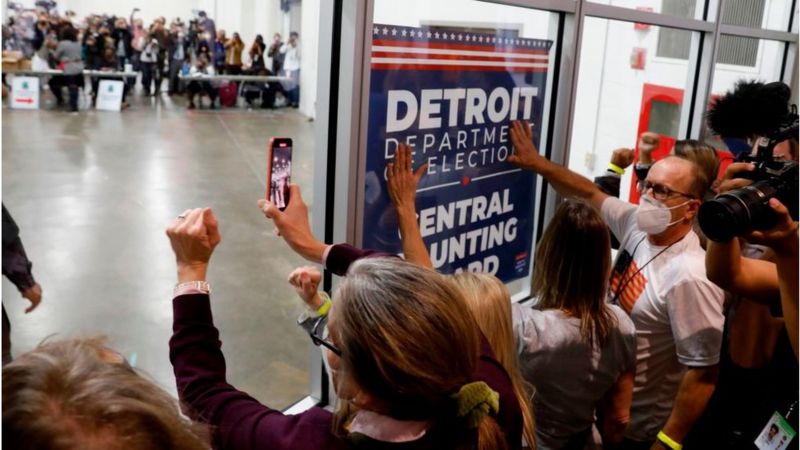
Democrat Joe Biden has been declared president-elect, but President Donald Trump is still planning legal challenges to the results in some key states.
His lawyer Rudy Giuliani told Fox News that it would be wrong for Mr Trump to concede because: “There is strong evidence that this was an election that in at least three or four states, and possibly 10, it was stolen.”
The Trump campaign is yet to provide this “strong evidence” but says it plans to lodge lawsuits in several key states on Monday.
Here’s what we know so far.
Pennsylvania
Mr Giuliani says further lawsuits will be filed over a lack of access for poll watchers in the state.
Poll watchers are people who observe the counting of votes, with the aim of ensuring transparency. They are allowed in most states as long as they are registered before election day.
In some areas this year, there were restrictions put in place before election day, in part due to coronavirus. There are also capacity limits set to avoid intimidation.
A 20-foot (six-metre) perimeter was set in the Philadelphia counting facility but this was challenged and a court ruling on Thursday said it should be reduced to six feet – as long as poll watchers adhered to Covid-19 protocols.
The Trump campaign has filed a federal lawsuit accusing election officials of violating the judge’s order.
Mr Giuliani said: “Even when a court order was obtained to allow the Republican inspectors to get six feet closer, they moved the people counting the ballots six further feet away.”
But the election officials insist they behaved properly.
On 5 November, Pennsylvania Secretary of State Kathy Boockvar said: “Every candidate and every political party is allowed to have an authorised representative in the room observing the process. Some jurisdictions including Philly are also livestreaming, so you can literally watch their counting process.”
The legal challenge in Pennsylvania also centres on the state’s decision to count ballots that are postmarked by election day but arrive up to three days later. Republicans are seeking an appeal.
Matthew Weil, director of the Bipartisan Policy Research Center’s elections project, says he is most concerned about this dispute as the nation’s top court – the US Supreme Court – was deadlocked on it before the election. This was before Justice Amy Coney Barrett, appointed by President Trump, was confirmed.
“I do think there is a risk that some of those [postal] ballots that were cast by election day and not received until Friday may be discarded”, he said.
But Mr Weil added: “My guess is that it’s not going to be a huge number of ballots that could be thrown out,” so the election would have to be “very, very close for that to matter”.
Michigan
Mr Trump won the state in 2016 by his slimmest margin – just over 10,700 votes – and Mr Biden has been projected as the winner here in 2020.
On 4 November, the Trump campaign filed a lawsuit to stop the count over claims of a lack of access to observe the process.
A judge dismissed the lawsuit, saying there was insufficient evidence that oversight procedures weren’t being followed.
Wisconsin
The president’s campaign has said it will request a recount in Wisconsin “based on abnormalities seen” on election day, although this wouldn’t require a lawsuit.
It’s unclear when this recount would take place, since typically these don’t happen until after officials finish reviewing the votes.
The state’s deadline for this part of the process is 17 November.
Columbia University Law School professor Richard Briffault says there was a recount in Wisconsin in 2016 as well, and it “changed about a hundred votes”.

Nevada
The Nevada Republican Party tweeted saying: “Thousands of individuals have been identified who appear to have violated the law by casting ballots after they moved from Nevada.”
The president’s legal team produced a list of people who it claimed had moved out of state but voted.
But – as pointed out by Politifact – the list alone does not prove a violation of law.
People who leave the state within 30 days before an election can still vote in Nevada. Students from Nevada – who are studying elsewhere – can also vote.
The case is focused on voters in Clark County, but the county’s registrar has said: “We are not aware of any improper ballots that are being processed.”
In a separate case, a federal judge blocked attempts by the Republicans to stop the use of a signature verification machine, rejecting allegations that it wasn’t able to check signatures correctly.

Georgia
A lawsuit was filed in Georgia’s Chatham County to pause the count, alleging problems with ballot processing.
Georgia Republican chairman David Shafer tweeted that party observers saw a woman “mix over 50 ballots into the stack of uncounted absentee ballots”.
On 5 November, a judge dismissed this lawsuit, saying there was “no evidence” of improper ballot mixing.

Arizona
The Trump campaign filed a lawsuit in Arizona on Saturday, claiming some legal votes were rejected.
The case cites declarations by some poll watchers and two voters who claim they had problems with voting machines.
The lawsuit is under review, but Arizona’s Secretary of State said it was “grasping at straws”.
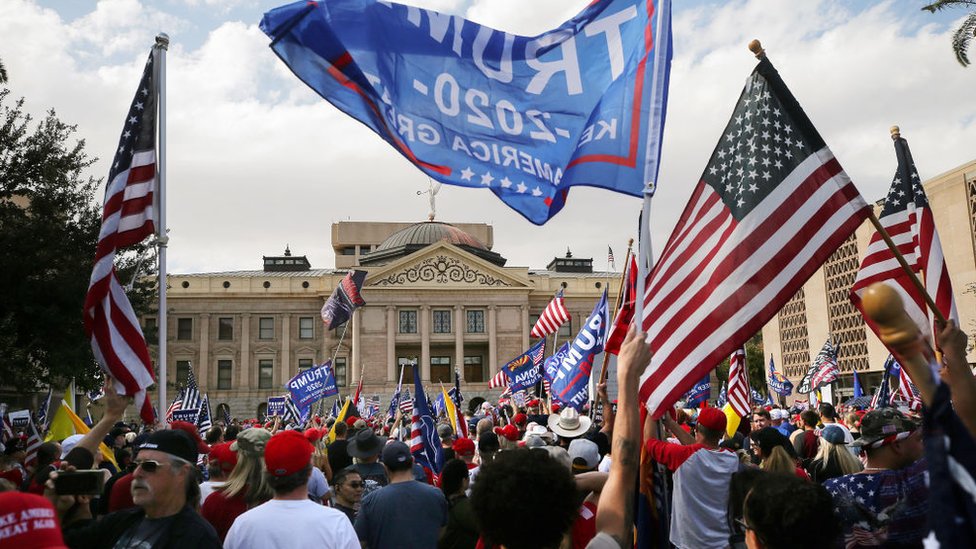

Could it reach the Supreme Court?
Early on Wednesday, Mr Trump claimed voting fraud – without providing evidence – and said: “We’ll be going to the US Supreme Court”.
If the election result is challenged, it would first require legal teams to challenge it in the state courts.
State judges would then need to uphold the challenge and order a recount.
The Supreme Court could then be asked be asked to weigh in.
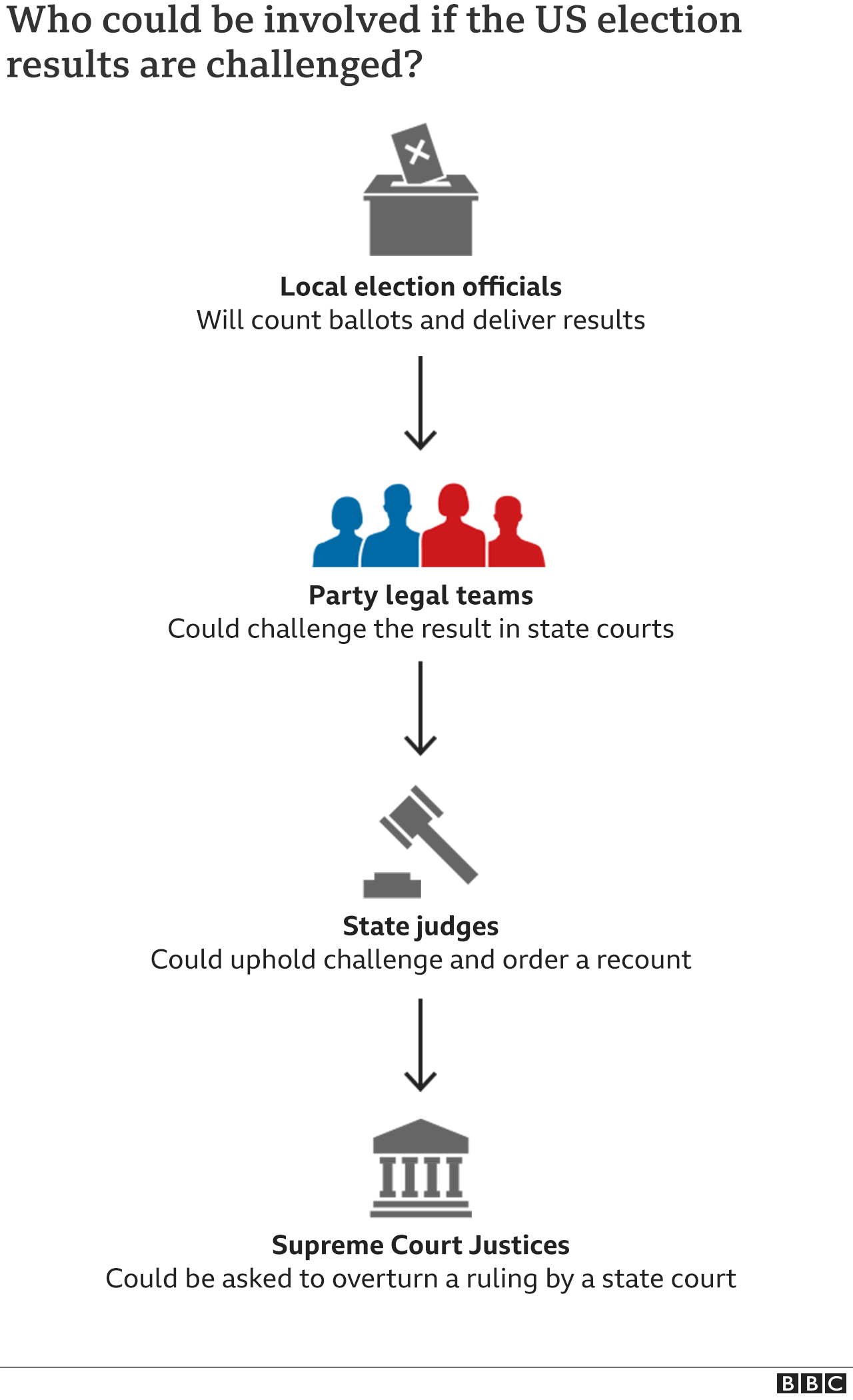
Prof Briffault says: “There’s no standard process for bringing election disputes to the Supreme Court. It’s very unusual and it would have to involve a very significant issue.”
To date, the 2000 election is the only one to be decided by the US Supreme Court.
In 2000, Democrat Al Gore lost Florida – and the presidential election – by 537 votes out of a total of almost six million cast in the state.
This was followed by a highly controversial recount process that lasted over a month – until the Supreme Court ruled to stop recounting and in favour of Republican George W Bush who became president.
-BBC
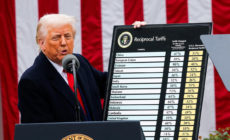


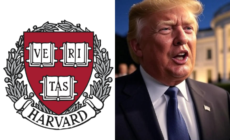






 (Selorm) |
(Selorm) |  (Nana Kwesi)
(Nana Kwesi)